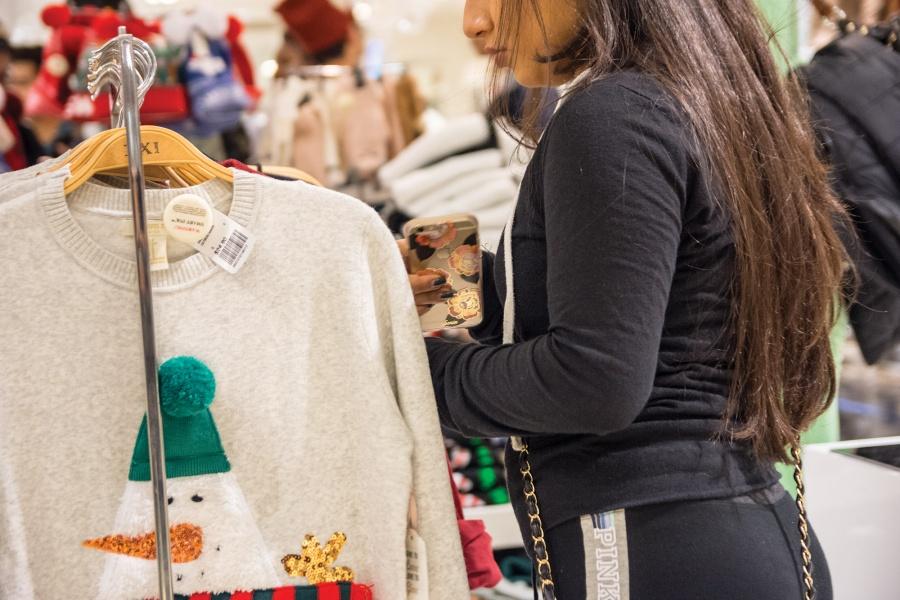The need to move away from consumerism
January 26, 2017
The Great Depression was a deplorable era of America. The money was gone but citizens didn’t lose hope. They knew this was temporary, they saw the beginning of relief only a few years later with the start of government programs that boosted the economy.
WWII was the final step to bring the country back to a healthy financial state. Those who grew up in that time didn’t want their children to experience the same struggle, so they spoiled them. They now had money and they gave their kids the childhood they couldn’t have.
Generations later, those actions have negatively affected our society. We are dominated by a material culture that hasn’t brought us the happiness we desire.
Our grandparents or great-grandparents didn’t anticipate an obsession with stuff, and their kindness has since overcompensated. It has gone too far.
One look at a website shows advertisements for stuff that holds no purpose in the household or in the workplace.
A street in any given city is bombarded with advertisements featuring young, happy looking models with the latest fashions and gadgets.
Of course you want this stuff too, you’ll be happy just like the models.
That is where we’re wrong. That polka dot spatula isn’t going to make us happy. Maybe the cake batter it’s scraping into a pan will bring us temporary happiness, but that’s beside the point.
We attach a ridiculous amount of meaning and value to these poorly made products that we overlook other parts of life that holds true meaning.
This epidemic of missing out on meaningful experiences because we’re too focused on our stuff was creatively termed “affluenza” in 1996 by John DeGraaf who made a documentary about the so-called disease. It talked about how Americans are destroying the environment and themselves by overconsumption.
However, there are easy steps to combat this, at least within our personal lives. Saving the Earth will take a group effort that will combine all countries to repair it for future generations. Individually, on the other hand, we could start living a minimalist lifestyle today.
Living in a minimalist way isn’t about living in the woods with only things that can fit in a backpack. It’s about being more mindful of the amount of things you buy and what specifically you do buy.
Minimalism can pertain to any person’s lifestyle; whether it’s actually in the woods or in suburbia.
According to another documentary from Joshua Fields Millburn and Ryan Nicodemus, “Minimalism is a tool to rid yourself of life’s excess in favor of focusing on what’s important.” Essentially, we can become happier human beings by obtaining less things.
Once we figure out that our stuff isn’t going to fix our unhappiness, we can find what it is that truly makes us happy.
Luckily, our society is in the early stages of adopting this new concept. HGTV is showing less and less shows about monster houses for the top 1 percent and is now featuring tiny houses and flipping homes for middle class families.
Stay at home moms and other crafters across the world have blogs on making everything homemade. From lotion to decadent cheesecakes, there’s a systematic process out there.
There are so many stories online and books about decluttering your lives and freeing yourself from things in order to free your own mind.
As a society, we can alter the mindsets of future generations, but it’s going to take more than growing herbs in your Brooklyn apartment.
These material goods can’t give us the love life has to offer. Cutting the cord with our stuff is the only way to discover what that love really entails.




